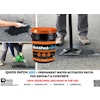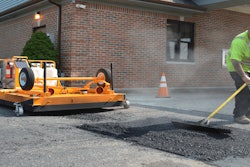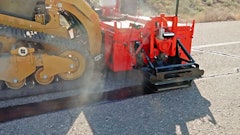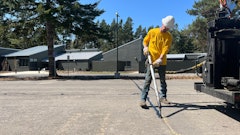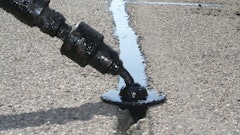The Pavement Coatings Technology Council (PCTC) has announced it will soon submit its third Data Quality Act (DQA) challenge since May to the U.S. Geological Survey (USGS) regarding research and reports concerning refined tar-based sealers.
According to Anne LeHuray, PCTC executive director, the third DQA Request for Correction (RfC) describes in detail “the exaggerations and violations of as many risk assessment guidelines as was needed to make it (falsely) appear that refined tar-based pavement sealers (RTS) are associated with elevated cancer risks.”
PCTC reported that a team of USGS employees based in Austin, TX has been leading a concerted nationwide advocacy campaign to ban the manufacture and use of RTS in what is believed to be a case of “White Hat Bias,” the first case to be described in environmental research. White Hat Bias is defined as “bias leading to distortion of information in the service of what may be perceived to be righteous ends,” and was first described in a case involving obesity research. White Hat Bias is conjectured to derive from “feelings of righteous zeal, indignation toward certain aspects of industry, or other factors.” PavementCouncil.org is filing DQA challenges in part to document the scientific inaccuracies, exaggerations, misleading statements and absence of context in USGS publications about RTS. In the process, the submissions are documenting White Hat Bias within this Department of the Interior agency.
PavementCouncil.org submitted the first DQA challenge in the series on May 15, exploring in detail the mistaken USGS claim that RTS is an important source of PAHs in sediment in US urban water bodies and lakes. The second RfC was submitted May 31 challenging USGS use of inaccurate and misleading photographs of fish with ugly skin tumors as a tactic to advance their agenda by scaring the public.
The third challenge, focused on a risk assessment collaboration between the USGS and Baylor University, will be posted on the USGS web site once submitted. In the meantime, a peer review of the risk assessment that is the subject of the challenge is available on the PavementCouncil.org web site.
PCTC announced that a fourth DQA challenge addressing USGS claims that RTS is an important source of PAHs in the atmosphere is in the works. The review reveals the same tendency as seen in other publications by the same USGS authors – that is, exaggeration to make it appear RTS contributes more to air pollution than it does.
For more information, including a detailed review of published USGS claims about RTS contributions to PAHs in air, visit www.pavementcouncil.org.

